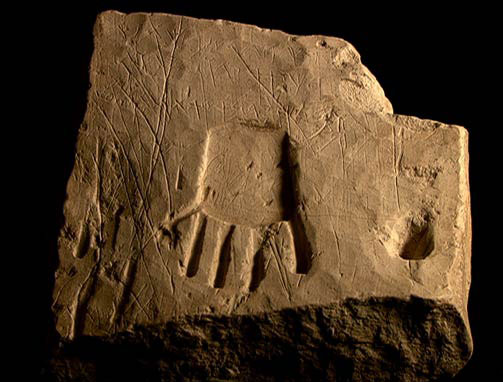The bible is evidence, and there is a lot of other anecdotal evidence that is found written in numerous books on the subject. To say that the Exodus of the bible was just invented out of thin air would be astonishing.
Actually, not the subject of the thread. I defer to the thread on this topic.
Nothing is "very much accepted." From what I know of biblical archaeology, very little is "very much accepted" just because there is so little reliable evidence of this ancient era. There are conflicting positions and interpretations upon most things by the different schools. The "bible is fiction" school is obviously your school. That is not a universal position. Moreover your focus, as I said earlier, relies too much on token linguistic similarities between the Canaanites and the Israelites. That does not infer a similar theological or syncretic system. The article to which I deferred clearly describes the predominating feature of the Israelites known to the Egyptians, even as early as 1400BC, being their worship of YHWH, which conflicts with a Canaanite pantheon based origin.
The Egyptian citiation does not conflict with YHWH being part of Canaanite pantheon. It is simply a reference to YHWH.
The linguistic origins of the Hebrew written language is not token, because the Canaanite/Ugarit language existed far older than the Hebrew language, and the earliest finds (very limited) are distinctly a primitive Canaanite/Hebrew. Can you provide any distinctive Hebrew language older ~700 BCE?
The Mesha Stele is circa 840BC and far later than the period that I am deferring to.
The Mesha Stele is in the Moabite Canaanite language and not a primitive version of Canaanite/Hebrew. This further documents that the Canaanite language was the dominant language and other languages in the region evolved from Canaanite. The archeological evidence for the region including the linguistic evidence demonstrates that the tribes were Canaanite/Ugarit in their cultural identity. The archaeological evidence found in the Hebrew villages in the region contained Canaanite figures of a female god, and other evidence of Canaanite culture. Yes there is evidence of the evolution of a distinctive Hebrew culture to the time after ~700 BCE when the Hebrews became a distinctive culture with their own language.
Ps 82;1 does not refer to a pantheon of gods, but to human judges, or to the "mighty." In fact your interpretation of YHWH giving judgement amongst pagan gods is naive, because Ps;82;2 onwards is clearly a rebuke directed towards human judges and their wicked judgements.
The translation stands as correct for Ps. 82:1, and adding verse 2 does not change anything when you use the correct translation.
The NIV version:
1 God presides in the great assembly;
he renders judgment among the “gods”:
2 “How long will you (The Hebrew is plural). defend the unjust
and show partiality to the wicked?
Just conjecture on your part. El is a generic name for God which was used up until the time of Moses, by the proto Israelites.
I acknowledged this, and you are neglecting the fact that it is used two ways. Also the Most High (El Eloyn) in the scripture I refer to does not refer to a generic reference to God.
YHWH has no known origin from any pantheon. To allow the bible to source your evidence of YHWH (I will be whom I will be) as the son of El is just trite misconception.
False, the correct translations of El in this case refer to Most High (El Eloyn), and refer to all Gods of sons of Most High (El Eloyn).
"I appeared to Abraham, to Isaac, and to Jacob as El-Shaddai--'God Almighty'--but I did not reveal my name, Yahweh, to them." (Ex 6;3)
The Exodus text is a much more recent post ~700 BCE book of the Pentateuch after the exile when Hebrews became dominantly monotheistic.. There is absolutely no evidence that Exodus existed prior to this, Can you provide one shred of evidence that Exodus existed prior to this?
Last edited:

